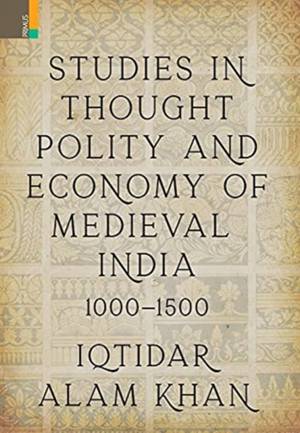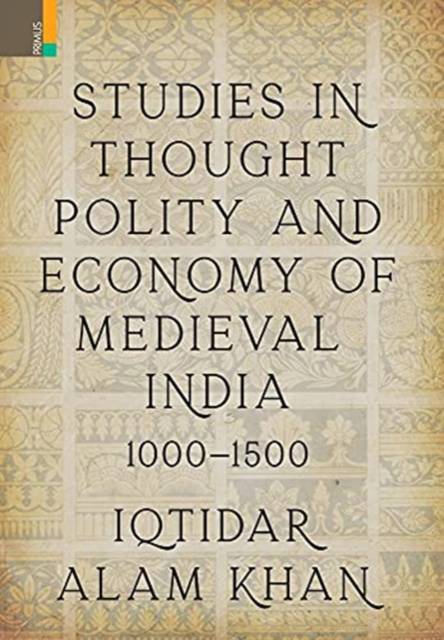
- Afhalen na 1 uur in een winkel met voorraad
- Gratis thuislevering in België vanaf € 30
- Ruim aanbod met 7 miljoen producten
- Afhalen na 1 uur in een winkel met voorraad
- Gratis thuislevering in België vanaf € 30
- Ruim aanbod met 7 miljoen producten
Studies in Thought, Polity and Economy of Medieval India 1000-1500
Iqtidar Alam KhanOmschrijving
This book attempts to comprehend the history of the Delhi Sultanate with reference to its Islamic identity.
The Turkish chiefs, despite having a military advantage due to their expertise in horsemanship, could only consolidate their rule through adjustment and sharing of power with local kshatriya rulers, and, therefore, tended to incorporate an increasing number of Hindu chiefs in the ruling establishment. This process was sought to be made durable by conceding to the chiefs many of the pecuniary gains and social clout they had enjoyed before the conquests. According to Barani, the ulema endorsed the view that in the given situation, provisions of fiqah evolved in Arabia were not practicable in the Delhi Sultanate. By the same logic, settlements conceding to the village chiefs' important roles in the fiscal administration of rural tracts were justified. Additionally, the Islamic characteristics of the State system in the Delhi Sultanate were profoundly impacted by Sassanid and Turkish traditions of statecraft. With the passage of time many notions of Hindu caste culture also became influential in the mental makeup of the ruling elites of the Delhi Sultanate.
Specificaties
Betrokkenen
- Auteur(s):
- Uitgeverij:
Inhoud
- Aantal bladzijden:
- 190
- Taal:
- Engels
Eigenschappen
- Productcode (EAN):
- 9789390430611
- Verschijningsdatum:
- 7/06/2021
- Uitvoering:
- Hardcover
- Formaat:
- Genaaid
- Afmetingen:
- 156 mm x 234 mm
- Gewicht:
- 453 g

Alleen bij Standaard Boekhandel
Beoordelingen
We publiceren alleen reviews die voldoen aan de voorwaarden voor reviews. Bekijk onze voorwaarden voor reviews.











